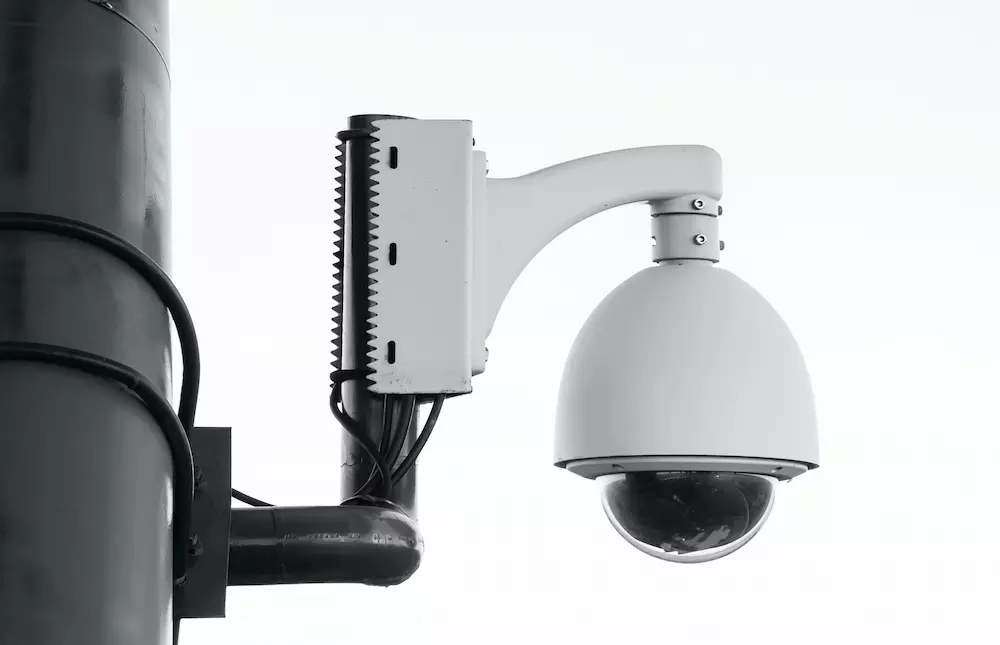
Prevent Camera Hacking at Your Business
No matter what kind of small business you own, you’re bound to have multiple webcams. From cameras built into laptops, tablets, and phones to stand-alone security webcams, there are almost too many to track.
While webcams are a very normal piece of any small business, they do present a security risk. Webcam hacking is becoming more common, and it pays to know how to prevent it. Let’s take a deep dive into camera hacking, including what it is, how it happens, and what you can do to stop it.
What is Camera Hacking?
Camera hacking is when a malicious actor hacks into a digital device (like a laptop, phone, or security camera) and takes control of the camera remotely. From there, they have complete control. They can listen to meetings or calls when the camera is on and record and download footage without your knowledge. A good hacker can even keep the camera on after you’ve turned it off, eavesdropping on anything you might be saying or doing. A compromised webcam is a huge security risk.

How Camera Hacking Happens
There are a number of methods that hackers can use to access your cameras. Here are a few of the most common.
Remote Access Trojans
A remote access trojan (RAT) is a type of malware that gives an attacker remote control of the victim’s device. Once they’re in control, they can turn your camera on without activating the light and record video without your knowledge.
RATs are often used for more than just camera hacking. They can log keystrokes and other activity, potentially compromising your passwords, bank account information, and other sensitive data. RATs are deployed via phishing emails, malicious links on social media or in messaging acts, and as malicious mobile apps or attachments.
Vulnerability Exploits
Another way hackers could hijack your webcam is through a vulnerability exploit. Operating systems aren’t always perfect, and occasionally, hackers can exploit mistakes and holes in the software to gain access to your devices. Video conferencing apps like Zoom can also have vulnerability exploits, and they can be just as damaging as an operating system exploit. Software developers do their best to find these vulnerabilities, but they don’t always get there first. The best way to protect against vulnerability exploits is to always keep your devices up to date.
Unsecured WiFI Networks
If your WiFi network is unsecured, an attacker could easily access and compromise the network. From there, they can access any security webcams connected to the network and, potentially, other computers and devices as well. Make sure your WiFi network has a password and is secured.
Potential Impacts on Your Business
The biggest impact of camera hacking can come from targeted attacks on specific employees. A hacked webcam means an attacker can eavesdrop on meetings. If they’ve hacked an employee who works with sensitive information, a hacker could steal information and sell it, use it for blackmail, or even engage in insider trading.
Another risk is burglary or theft from your physical office. This is less common, as office security cameras tend to be hardwired in the building instead of webcams connected to computers or WiFi, but it is still a risk. Hacking an on-site camera can allow a thief to case your building before burglarizing it. A compromised on-site camera also carries the same risks as a hacked webcam, like corporate espionage and extortion.
Tips for Preventing Camera Hacking at Your Business
Preventing camera hacking is all about following good security practices. Here are a few tips to keep your webcams secure:
- Use a webcam cover and microphone blocker.
- Turn off external webcams when not in use.
- Update your video conference apps.
- Only download apps from official stores and sources.
- Use antivirus software with webcam protection.
- Keep your WiFi network secure with a password.
- Only open email attachments that you know are legit. If you have any doubts, talk to IT.
- Turn off your computer when not in use.
Camera hacking is a scary prospect, but if you’re careful and have a good security plan, it shouldn’t be a problem. Protecting yourself from camera hacking is much like protecting yourself from other computer viruses. Don’t click on dodgy links, keep your devices updated, and be smart.
Getting everything you need from your home Internet hookup?
Have a question about Optimum cable or Internet service? Explore our Frequently Asked Questions page, or contact us for answers.